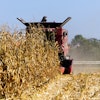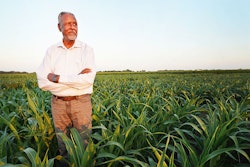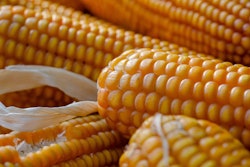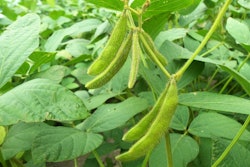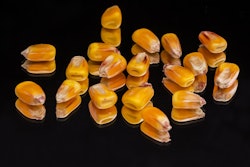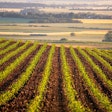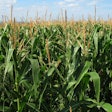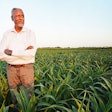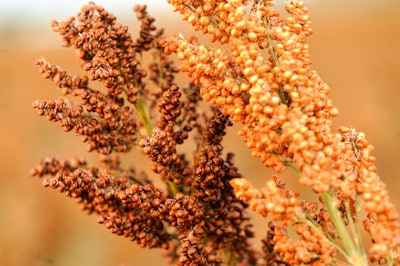
Kansas State University announced a recent $22 million award from the U.S. Agency for International Development as a vital step in improving lives around the world by making cereal crops more readily available to those most at risk for hunger and malnutrition.
The university will lead the Feed the Future Climate Resilient Cereals Innovational Lab (CRCIL), which includes U.S. and international partners aiming to advance the breeding of four major world crops — sorghum, millet, wheat and rice.
Jagger Harvey, the lab's director and a research professor in K-State's plant pathology department, said the award's overall ceiling is $37 million, allowing it to help an expanding set of partner countries over time.
"CRCIL unleashes the strength of the U.S land-grant system and our global partner network to better climate-proof cereal germplasm, bolstering future food and nutritional security, and in turn increasing global security and prosperity," Harvey said. "Thanks to USAID's generous support, we have assembled a top-tier, diverse consortium of scientists to collaborate with front-line cereal improvement experts leading efforts in partner countries."
Helping to double food production by 2050
According to Harvey, the team has charted an ambitious and collaborative approach to enriching the climate resilience of genetic materials, like seeds, available to cereal breeders and ultimately to farmers abroad and in the U.S. He said CRCIL will work toward helping to sustainably double food production by 2050, even under "a perfect storm of dwindling and degrading arable land, less water, and under worsening climatic conditions that are also accelerating pest and disease-associated crop losses."
"Kansas farmers and researchers are no strangers to harsh climatic conditions impacting cereal production," Harvey said. "This makes K-State the perfect home for this new initiative."
Globally, the climate crisis is impacting developing countries hardest. For example, East Africa has been facing its worst drought in 40 years, displacing a million people and threatening many more with famine. Harvey said global conflicts — including Russia's invasion of Ukraine — and geopolitical instability are further eroding global food security by reducing the availability of cereals to developing countries.
"More than 50% of the world's caloric intake comes from cereals, and with the exception of maize, CRCIL is dedicated to identifying and using genetic variation to improve farmers' production and consumer's acceptance of the top vital cereals," said Jared Crain, a research assistant professor in K-State's plant pathology department who will serve as the associate director of the innovation lab.
Grant used to improve four focus crops
The $22 million award is not to build a physical lab but rather to support collaborative, interdisciplinary research and other activities related to improving the four focus crops.
Crain said much of the work includes applying current plant-breeding technologies — such as phenotyping with uncrewed aerial vehicles, next-generation DNA sequencing and genotyping, crop modeling and simulations assisted by artificial intelligence, speed breeding and others — to programs around the world.
"Ultimately, this research will help improve germplasm to be more resilient to abiotic stresses, such as drought and heat, biotic stresses, such as disease, and meet consumers' preferences for safe and nutritious food," Crain said.
CRCIL is the fifth innovation lab award that K-State has received through Feed the Future, the U.S. government's global hunger and food security initiative. Nina Lilja, associate dean in K-State's College of Agriculture who helped to land the project, noted that since she oversaw the university's first innovation lab award nearly 10 years ago, USAID has invested close to $128 million in K-State innovation labs for research in sustainable intensification, sorghum and millet, post-harvest loss and wheat genomics.
"CRCIL builds on the dedicated leadership, commitment and accomplishments of our faculty engaged in international research that K-State is doing and has been doing over the past decades," Lilja said. "On the global stage, this lab elevates K-State to a premier position in leading an important international climate resilience plant breeding consortium, helping K-State researchers expand their existing international network for crop improvement."
Harvey said K-State is proud to be joined by CRCIL partners at Clemson University, Cornell University, Delaware State University, Louisiana State University and the University of Florida; and international partners in South Asia, Eastern and Western Africa and Latin America. RTI International, the African Women in Agricultural Research for Development program, and Seeds2B are providing additional support.
"The CRCIL consortium assembles a tailored set of crop-agnostic advanced science expertise, so partner country breeders can super-charge their climate resilience cereal improvement efforts," Harvey said.
More information about USAID's Feed the Future program is available online.

